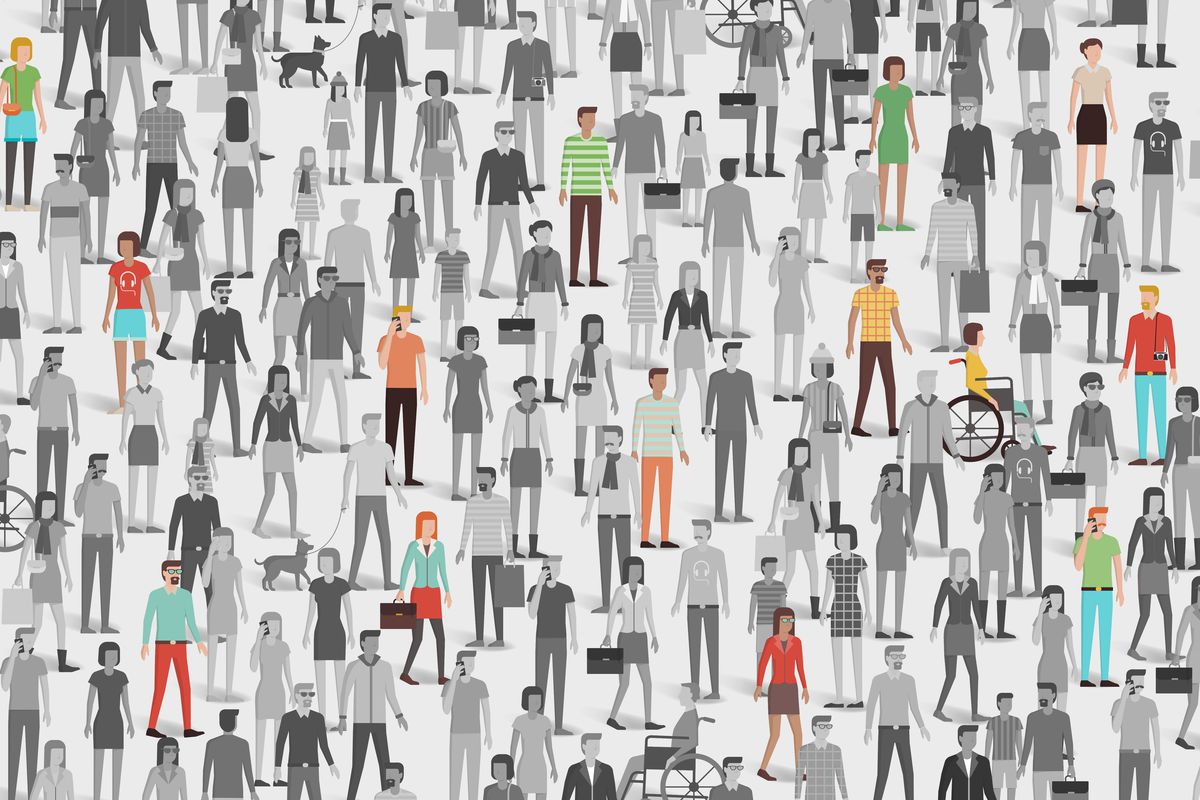Essential Life Skills in the Beauty and Wellness Industry: What They Are and What They Aren’t
Understand life skills in beauty and wellness
The beauty and wellness industry demand a unique blend of technical expertise and interpersonal abilities. While technical skills like makeup application, massage techniques, or hairstyling are fundamental, they’re solely part of the equation. What sincerely distinguish successful professionals in this field are the life skills they bring to their practice — those transferable abilities that enhance client relationships, business operations, and personal development.
Nevertheless, there be oftentimes confusion about what constitute a genuine life skill in this industry. This distinction matter because focus on the wrong skill set can lead to professional stagnation, despite technical excellence.
What are considered life skills in beauty and wellness?
Communication skills
Effective communication stand as peradventure the virtually critical life skill in the beauty and wellness sector. This includes:
- Active listening to sincerely understand client needs
- Clear explanation of treatments and processes
- Tactful handling of difficult conversations
- Nonverbal communication awareness
A stylist who can interpret a client’s vague description of their desire haircut demonstrate this skill attractively. Likewise, an esthetician who can explain complex skincare regimens in accessible language build trust and compliance.
Emotional intelligence
The ability to recognize, understand, and manage emotions — both yours and others’—is invaluable in an industry build on personal connections. This includes:
- Empathy toward client concerns
- Self-regulation during stressful situations
- Read emotional cues that clients may not verbalize
- Create emotional safety in vulnerable situations
Consider the massage therapist who intuitively adjust pressure base on a client’s nonverbal cues, or the makeup artist who sensitively work with a client undergo cancer treatment.
Adaptability and problem-solving
The beauty industry forever evolves with new trends, products, and client expectations. Professionals must:
- Pivot when original plans don’t work
- Find creative solutions with limited resources
- Adjust to change client preferences mid-service
- Handle unexpected situations graciously
A colorist who can reformulate when a color doesn’t develop as expect or a spa manager who swimmingly accommodate a double book appointment demonstrate these crucial skills.
Time management
Whether run your own business or work in a salon, time management affect both client satisfaction and profitability:
- Realistic scheduling that allow quality service without rush
- Prioritization of tasks during busy periods
- Efficiency without compromise quality
- Respect clients’ time constraints
The nail technician who can deliver a perfect manicure within the promise timeframe or the yoga instructor who create a complete experience within a class period exemplify this skill.
Financial literacy
Understand the business side of beauty and wellness is essential for long term success:
- Basic accounting and pricing strategy
- Budget management for supplies and equipment
- Investment planning for business growth
- Understand profit margins on services and products
This applies whether you’re a booth renter calculate your weekly expenses or a wellness center owner manage staff payroll.
Stress management
The beauty industry can be physically and emotionally demanding:
- Self-care practices to prevent burnout
- Boundary set with clients and colleagues
- Techniques to maintain calm during high pressure situations
- Work-life balance strategies
The esthetician who practice hand stretches between clients or the hairstylist who schedule adequate breaks demonstrate healthy stress management.
Cultural competence
In our diverse society, understanding and respect cultural differences is crucial:
- Knowledge of beauty and wellness practices across cultures
- Sensitivity to cultural meanings attach to appearance
- Adaptability with services for diverse hair types, skin tones, and body types
- Awareness of cultural taboos or preferences
A hairstylist who has educated themselves on texture hair care or a wellness practitioner who understand cultural attitudes toward touch demonstrate this vital skill.
What is not considered a life skill in beauty and wellness
Technical expertise
While perfectly essential to success, technical abilities are distinct from life skills. These include:
- Specific treatment protocols
- Product formulation knowledge
- Equipment operation
- Technique specific training
A cosmetologist may have mastered the perfect balayage technique, but thirepresentsnt technical expertise quite than a life skill. Likewise, a massage therapist’s knowledge of anatomy is technical knowledge, not a life skill.
Industry certifications
Formal qualifications validate technical knowledge but don’t constitute life skills:
- License credentials
- Brand specific certifications
- Continue education certificates
- Specialized training documentation
These credentials demonstrate commitment and expertise but differ basically from transferable life skills that apply across contexts.
Product knowledge
Understand product ingredients, applications, and benefits is industry specific knowledge kinda than a life skill:
- Ingredient functionality and interactions
- Contraindications and safety protocols
- Retail product lines and feature
- Formulation understanding
While crucial for effective service delivery, this knowledge doesn’t translate direct to other life context in the way true life skills do.
Trend awareness
Stay current with beauty and wellness trends is professionally important but doesn’t qualify as a life skill:
- Fashion and beauty trend tracking
- Social media beauty influencer awareness
- Seasonal color and style predictions
- Emerge wellness modalities
A nail artist may create perfect on trend designs, but trend awareness itself is industry knowledge kinda than a transferable life skill.
Software proficiency
While digital tools have become essential in modern beauty businesses, specific software skills are tool base kinda than life skills:
- Booking system operation
- Point of sale software use
- Social media platform management
- Inventory tracking systems
These technical abilities support business operations but differ from fundamental life skills that transcend specific platforms or tools.
Why this distinction matter
Career longevity
The beauty industry experience significant turnover, with many professionals leave within their first five years. Those who develop strong life skills alongside technical expertise tend to enjoy greater career longevity. When trends change or physical demands increase, these transferable skills provide adaptability and resilience.
Client retention
Research systematically show that clients oftentimes leave service providers not because of technical inadequacies but because of communication breakdowns, perceive insensitivity, or poor emotional experiences. Life skills direct impact these crucial client relationship factors.
Business success
For beauty entrepreneurs, life skills like financial literacy, time management, and problem solve instantly impact business viability. Technical excellence solely can not compensate for deficiencies in these areas.
Professional satisfaction
Beauty professionals with strong life skills report greater job satisfaction and lower burnout rates. The ability to manage stress, communicate efficaciously, and navigate interpersonal challenges contribute importantly to workplace happiness.
Develop life skills for beauty industry success
Intentional practice
Unlike technical skills that can be master through repetition, life skills require intentional development:
- Set specific goals for improvement in areas like communication or time management
- Seek feedback from trust colleagues or mentors
- Reflect regularly on challenge client interactions
- Practice new approaches in low stakes situations before implement them generally
Continuing education beyond technique
Expand professional development beyond technical training:
- Workshops on business management or client communication
- Read materials on psychology and emotional intelligence
- Courses in financial planning for small businesses
- Stress management and self-care training
Mentorship and community
Learn from those who excel in life skills:

Source: gskinbeautyinstitute.edu
- Seek mentors who demonstrate exceptional client relationships
- Participate in industry groups that discuss business challenges
- Create accountability partnerships for personal development
- Share experiences and solutions with trust colleagues
Balancing technical and life skills
The virtually successful beauty and wellness professionals recognize that neither technical expertise nor life skills solely create sustainable success. Alternatively, they pursue balanced development in both areas.
Consider create a personal development plan that allocate time and resources to both skill categories. For every technical workshop you attend, balance it with intentional development of a life skill. For every new treatment protocol you master, strengthen your ability to communicate its benefits efficaciously to clients.
The evolving landscape of life skills in beauty and wellness
As the industry continue to evolve, certain life skills are gain increase importance:
Digital communication
The ability to translate warmth, professionalism, and clarity through digital channels has become essential as more client interactions happen online. This iincludesthoughtful text messages, engage social media presence, and clear video consultations.

Source: nationalskillsnetwork.in
Ethical decision-making
As clients become more conscious of sustainability, inclusivity, and ethical business practices, beauty professionals must develop the skill of make and communicate values base decisions about products, services, and business operations.
Resilience
Recent global disruptions have highlighted the importance of adapt to unexpected challenges. The ability to pivot, persevere, and maintain optimism through industry changes has become a define life skill for beauty professionals.
Conclusion
In the beauty and wellness industry, technical expertise provide the foundation for service delivery, but life skills create the framework for last success. Understand that industry certifications, product knowledge, technical expertise, trend awareness, and software proficiency — while valuable — are not life skills help professionals direct their development efforts befittingly.
The virtually successful beauty and wellness professionals recognize that clients come for their technical skills but return because of their life skills. By designedly develop both, you create a practice that not solely deliver beautiful results but besides meaningful human connections and sustainable business success.
As you continue your professional journey, regularly assess both your technical abilities and your life skills. This balanced approach will serve you advantageously through industry changes, client challenges, and personal growth opportunities, will ensure that you’ll thrive quite than simply will survive in this dynamic and rewarding field.



